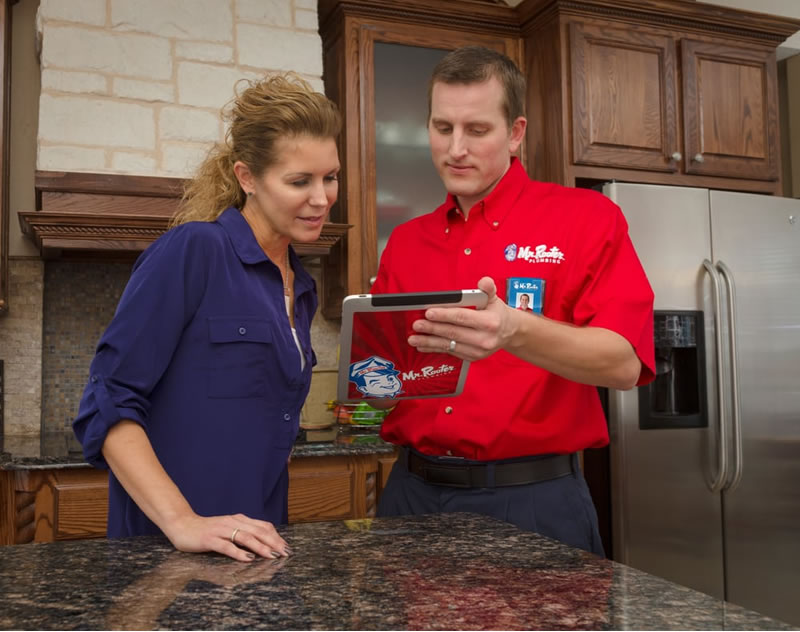Menu
Call This Saturday to Get $50 Off
Do You Need a Plumber in Dallas, TX? Call us Now to Get $50 OFF
4.8 / 5 Ratings based on 1384 reviews Great Plumbers, Great Reviews
Call This Saturday to Get $50 Off
We can all agree that kitchen drains are one of the most used drains in a home; hence, they’re prone to blockages. Having a clogged kitchen sink drain can be a nightmare, especially when you’re hosting guests. Luckily, knowing the dos and don’ts for kitchen drains can help you avoid drain clogs and expensive drain cleaning repairs. Today, Mr. Rooter Plumbing outlines the basic dos and don’ts for kitchen drain health.

Install a drain strainer or stopper in your kitchen sink to catch food particles, debris, and other solid materials. This prevents them from entering the drain and causing clogs. Regularly clean the drain strainer to ensure proper water flow.
Frequent use of the garbage disposal helps prevent the accumulation of food debris in the drainpipes. It contributes to the overall health of your plumbing system by reducing the likelihood of clogs and backups. Just remember, your garbage disposal is not a bottomless pit – avoid overloading it with tough materials.
Even with your best efforts, grease and grime can accumulate in kitchen drains over time. A professional cleaning removes hidden buildup and keeps your drain flowing smoothly.
Run cool water for at least 15 seconds before and after using the garbage disposal. Cold water helps solidify grease and fats, making it easier for the blades to chop them up.
If your drain is beyond the reach of DIY solutions, don't hesitate to call in an emergency plumber to help you out. Professional plumbers have the tools and expertise to tackle even the toughest clogs.
Oil, grease, and fats solidify in the pipes, creating nasty, stubborn blockages. It's tempting, but resist the urge to pour these substances down the drains. Dispose them responsibly in a container or compost bin.
Chemical drain cleaners might seem like a quick fix, but they can damage your pipes and harm the environment. Stick to natural methods or call a friendly plumber for safe solutions.
While plunging can be an effective way to clear minor clogs, excessive force can damage pipes, seals, and plumbing fixtures. It's important to use a plunger with measured force to avoid causing more harm than good. If you’re not sure how to use a plunger to clear kitchen drains, call a nearby plumbing service to help you.
Treat your garbage disposal with respect. Too much food at once can overwhelm it, leading to clogs and potential motor burnout. Avoid putting fibrous or stringy materials, like celery or corn husks, into the disposal, as they can tangle the blades.
Gurgling sounds, slow drainage, and unpleasant odors are all cries for help from your drain. Don't ignore them; address the issue as quickly as possible before a minor clog turns into a major headache.
Stop stressing over clogged drains, leaky faucets, and other kitchen plumbing issues. Mr. Rooter Plumbing is your go-to plumbing service, ready to fix any kitchen plumbing mess.
The DIY spirit in the U.S. is more alive than ever, with…
Read More+The drainage system in your home is vital for maintaining convenience and the well-being of…
Read More+Leaks are the most common plumbing problems in residential and commercial buildings. However, minor…
Read More+Did you turn on your water, but it had a weak flow…
Read More+